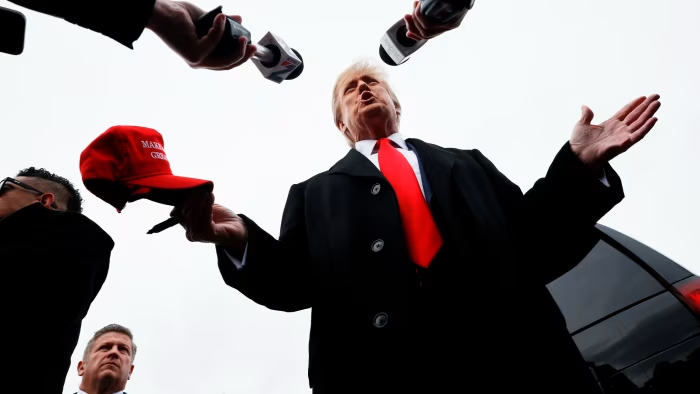Specter of a potential return of Donald Trump to the White House looms over the United States, allies across the globe, particularly in Europe, find themselves grappling with strategic uncertainties. For decades, UK foreign policy has been firmly rooted in two pillars: the European Union and the close alliance with Washington. However, the potential resurgence of Trump poses significant challenges and prompts a reevaluation of who would stand as allies in such a geopolitical landscape.
The apprehension among European democracies is palpable. Trump’s disregard for established alliances, particularly the North Atlantic Treaty Organization (NATO), raises existential concerns. His dismissive attitude towards NATO obligations and encouragement of Russian assertiveness create strategic uncertainties, even if his words may not directly translate into policy.
Traditionally, the strength of the UK’s alliance with the US has been based on historical allegiance and shared values. However, Trump’s transactional approach to international relations, characterized by a disdain for traditional alliances and a focus on “winning” at any cost, challenges this foundation. His preference for bilateral transactions over multilateral agreements undermines the cohesion of alliances like NATO and fosters a climate of uncertainty and distrust.
Furthermore, Trump’s antagonism towards the European Union, viewing it as a commercial rival rather than a partner, adds another layer of complexity to the transatlantic relationship. His support for Brexit and desire to undermine the EU’s economic influence align him more closely with the ambitions of leaders like Vladimir Putin than with traditional allies.
The repercussions of Trump’s approach are already being felt in geopolitical hotspots like Ukraine, where delays in vital aid and ambiguous messaging contribute to instability and embolden adversaries. Additionally, the erosion of bipartisan support for democratic values in the US Congress further strains international relationships and diminishes the credibility of US leadership on the world stage.
In response to these challenges, European leaders are increasingly advocating for “strategic autonomy,” signaling a shift towards greater self-reliance and independence in security and defense matters. This reorientation forces the UK to confront difficult questions about its place in a changing geopolitical landscape and the future of its alliances.
However, amidst these geopolitical shifts, the UK’s political discourse remains largely focused on domestic issues, with foreign policy taking a backseat. The urgency of redefining the UK’s global orientation and navigating a world where traditional alliances are in flux demands serious consideration and strategic foresight from political leaders.
In conclusion, the potential resurgence of Trump and the evolving dynamics of global politics necessitate a fundamental reassessment of UK foreign policy and alliances. As traditional pillars of UK diplomacy come under strain, political leaders must demonstrate vision and leadership to navigate these uncertain waters and safeguard the country’s interests in a rapidly changing world.










